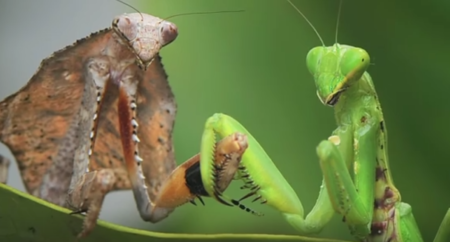Should we vaccinate the oldest? Plus mantis fights, catnip answers, and more
22 Jan 2021
Posted by Andrew Kantor
Georgia gets into gear
After a few hiccups at the start, Georgia’s vaccine effort has roared ahead, more than doubling the number of vaccinations two weeks in a row.
More than 423,000 people had received the vaccine as of Monday, according to state health officials. That’s roughly just under 4 percent of the state’s population and 46 percent of the two vaccines that it has received.
There’s a new commish in town
President Biden has named CDER’s Janet Woodcock as acting FDA commissioner, and may give her the job permanently. That is all.
Of course there’s some bad Covid news
While the Pfizer vaccine seems to work against the U.K. variant of Covid-19, there are at least two worrisome issues about the various emerging strains.
People who had survived mild infections with the coronavirus may still be vulnerable to infection with a new variant; and more worryingly, the vaccines may be less effective against the variants.
The good news seems to be that, even if the vaccine doesn’t prevent infection, it will at least make the sickness more mild.
You need another reason not to smoke?
Fine. How about “Scientists Discover that Nicotine Promotes Spread of Lung Cancer to the Brain”?
Yep, researchers at Wake Forest School of Medicine found …
…that nicotine enhanced brain metastasis by crossing the blood-brain barrier to change the microglia – a type of immune cell in the brain – from being protective to supporting tumor growth.
But they didn’t stop there. They went and found a drug that might reverse it: feverfew, the herb. (Technically parthenolide, the active ingredient). Yep, it seems that feverfew can block that nicotine-induced brain metastasis — something that’s up next for research.

Catnip serves a purpose after all
A Japanese biologist was wondering why cats go nuts over catnip, so — as one does — he spent five years researching it. Result: He and his team found two interesting pieces of information.
- “[T]he key intoxicating chemicals in the plants activate cats’ opioid systems much like heroin and morphine do in people.” That ingredient: nepetalactone. (In the silver vine plant, which cats also love, it’s nepetalactol.)
- Catnip acts as a mosquito repellent — that nepetalactone repels mosquitoes (and cockroaches).
Most scientists and pet owners assumed the only reason that cats roll around in catnip was for the euphoric experience. “Our findings suggest instead that rolling is rather a functional behavior.”
What if
What if prioritizing the vaccination of high-risk individuals wasn’t the best strategy? Conventional wisdom says it’s pretty obvious, but when NYU engineers ran simulations, they found that is wasn’t who you vaccinate first that made a difference, it was how many people.
To obtain significant improvements, a very large fraction of the town population should, in fact, be vaccinated.
And what works best to keep deaths down during the rollout? “[T]he restrictive measures in place during the first wave [“social distancing, masks, and mobility restrictions”] greatly surpass those from any of these selective vaccination scenarios.”
When biologists get bored
They set up “gladiator matches” between praying mantises.

Two bugs enter, one bug leaves


